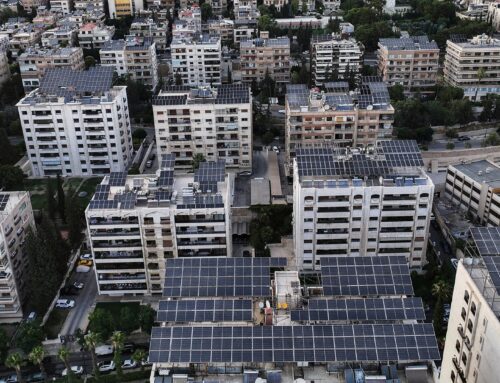Arkansas Renewable Energy Projects Stalled by Political Opposition
July 6, 2025


Lauren Waldrip doesn’t understand the attitude her political party has taken on renewable power in Arkansas.
In June, a fifth county in the state placed a moratorium on wind and solar power projects, sending a counterintuitive message to renewable energy developers, Waldrip said. She’s executive director of the Arkansas Advanced Energy Association.
“I think it has become this politically trendy take for us as Republicans to be against wind energy, but that goes against the things we want from an energy independence and national security standpoint.”
And while some might sympathize with Arkansans who do not want a 600-foot wind turbine on neighboring land, including solar projects in moratoriums in Newton, Boone, Carroll, Madison and Crittenden counties mystifies Waldrip.
“There was a lot of conversation during [the early 2025] legislative session, and unfortunately the Legislature passed a law limiting wind energy projects, despite talk through the whole session about how we have this energy shortage and need more energy,” she said.
“There are good ordinances that put proper limits on things, but these moratoriums send a message that we’re not open for business, that we don’t want more energy generation, and that we don’t believe in property rights. It’s counterintuitive to all the things that we believe as conservatives.”
Waldrip spoke to Arkansas Business just after Silicon Ranch of Nashville, Tennessee, announced it’s building a $4.75 million utility-scale solar installation near Helena-West Helena. Phillips County officials warmly welcomed the 116-acre, 4.75-megawatt solar array, which should be completed by the end of next year.
“It’s huge for the county,” Justice of the Peace Martin Rawls said. “We struggle with our tax base and our budget. I’m thankful they chose our county.”
The solar installation will go up on farmland, but the project will be agriculture-friendly, officials said. Plans call for sheep to graze beneath the rows of panels. Waldrip, who grew up on a farm in Lee County, noted that agrivoltaics, the practice of melding solar power and agriculture, is trending nationwide.
“One reason that we’re seeing so many of these projects in Arkansas is because of the relatively affordable ag lands that we have,” Waldrip said. “I have talked about the benefit that these projects can give to farmers and landowners as another revenue option. Sometimes these arrangements keep operations in the family and in business.
“And with agrivoltaics, land that’s generating power is utilized for agriculture as well,” she said. “It might be sheep; it might be goats. They’re using it for pollinators in some parts of the nation, tomatoes and different specialty crops. They’re also doing some research on using it for poultry.”
Rawls, of the Phillips County Quorum Court, took to social media to reassure a constituent concerned about “toxins” the project might leave in the land.
“Silicon Ranch buys the land and doesn’t lease it,” Rawls wrote. “Their main mission is to leave the land better than they found it. That was my first question when I first met with them. … They plan to put sheep on the land through a local farmer.”
Still, the assault on renewable power continues.
Washington County is now considering a moratorium on wind projects, and one Senate version of President Donald Trump’s “big, beautiful bill” would place new taxes on wind and solar energy projects.
That plan, which Elon Musk called “utterly insane and destructive,” was still under negotiation when Arkansas Business went to press.
Search
RECENT PRESS RELEASES
Related Post



